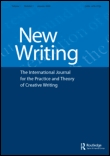
New Writing-The International Journal for the Practice and Theory of Creative Writing
Scope & Guideline
Connecting Writers and Scholars Across the Globe
Introduction
Aims and Scopes
- Interdisciplinary Approaches to Creative Writing:
The journal emphasizes interdisciplinary methodologies, integrating insights from fields such as psychology, sociology, and cultural studies to enrich the understanding of creative writing. - Focus on Pedagogy and Practice:
A significant aim of the journal is to explore innovative teaching methodologies and practices in creative writing, offering insights into how writing can be taught effectively in diverse contexts. - Engagement with Contemporary Issues:
The journal often addresses contemporary themes such as identity, trauma, and the impact of technology, reflecting on how these issues shape creative writing and its reception. - Exploration of Genre and Form:
There is a consistent focus on the exploration of various genres and forms within creative writing, including poetry, fiction, and hybrid forms, allowing for a rich discourse on stylistic and structural innovations. - Global Perspectives on Creative Writing:
The journal seeks to include diverse voices and perspectives from around the world, promoting a global discourse on creative writing practices and theories.
Trending and Emerging
- Integration of Technology in Writing:
There is a growing interest in how technology, particularly artificial intelligence, influences creative writing processes and outcomes, reflecting broader societal changes. - Explorations of Identity and Intersectionality:
Recent works increasingly examine themes of identity, including race, gender, and sexuality, highlighting the importance of intersectionality in creative writing. - Ecological and Climate Concerns:
The journal is witnessing a rise in publications that address ecological issues and climate change, reflecting a broader cultural movement towards environmental awareness. - Collaborative and Community-Based Writing:
Emerging themes include collaborative writing practices and community engagement, indicating a trend towards more participatory approaches to creative writing. - Focus on Mental Health and Well-Being:
There is an increasing emphasis on the therapeutic aspects of creative writing, exploring how writing can be a tool for mental health and emotional expression.
Declining or Waning
- Traditional Narrative Structures:
There seems to be a declining emphasis on conventional narrative structures, as the journal increasingly explores experimental forms and non-linear storytelling. - Focus on Print Media:
As digital platforms and multimedia storytelling gain prominence, discussions centered around print media and traditional publishing practices appear to be diminishing. - Outdated Pedagogical Methods:
The journal is moving away from traditional pedagogical approaches in creative writing, such as strict workshop formats, in favor of more innovative and inclusive teaching strategies. - Regional and National Literary Traditions:
There is a noticeable reduction in the focus on specific regional or national literary traditions, with a shift towards more universal themes and global perspectives. - Static Genre Definitions:
The journal is increasingly challenging static definitions of genres, suggesting a decline in articles that strictly adhere to traditional genre classifications.
Similar Journals
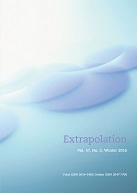
EXTRAPOLATION
Exploring the Intersections of Culture and LiteratureEXTRAPOLATION, published by Liverpool University Press, is a leading academic journal that occupies a vital space in the fields of Cultural Studies and Literature and Literary Theory. With an ISSN of 0014-5483 and an E-ISSN of 2047-7708, the journal has established a robust scholarly reputation, as evidenced by its Q1 ranking in Literature and Literary Theory and Q2 ranking in Cultural Studies for 2023. The journal serves as a platform for in-depth research and critical discourse, ranging from contemporary literary analyses to interdisciplinary cultural investigations. By embracing an array of theoretical perspectives, EXTRAPOLATION offers readers access to cutting-edge scholarship and fosters a dynamic exchange of ideas, making it an indispensable resource for researchers, educators, and students alike. The journal has been converging valuable contributions from 2011 to 2024, solidifying its importance in the academic landscape. Although access is not open, the journal's exceptional standing, indicated by a rank of #163 in Literature and Literary Theory (85th percentile) and #543 in Cultural Studies (58th percentile) within Scopus rankings, underscores its relevance and impact.

CHICAGO REVIEW
Fostering Innovation in Literary ExpressionCHICAGO REVIEW is a prestigious literary journal published in the United States, with a mission to explore the rich tapestry of contemporary literature and literary theory. With its ISSN 0009-3696 and E-ISSN 2327-5804, the journal serves as a vital platform for emerging voices and established authors alike, showcasing a diverse array of literary forms, including poetry, prose, and critical essays. Published by the CHICAGO REVIEW, the journal stands as an influential publication in the field, particularly noted for its contributions to the understanding of literature's role in society. Despite being categorized in the fourth quartile (Q4) for 2023 in Literature and Literary Theory, its commitment to quality and innovation makes it a significant resource for researchers, professionals, and students seeking to deepen their engagement with literary studies. The journal has maintained a continuous presence from 2002 to 2022, promising a comprehensive archive of thought-provoking content for its readers.
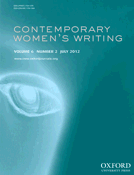
Contemporary Womens Writing
Engaging with the Evolving Landscape of Women's WritingContemporary Women's Writing is a distinguished journal published by Oxford University Press, focusing on the vibrant and evolving landscape of women's literature. Since its inception in 2009, this journal has become a pivotal platform for the analysis, critique, and exploration of contemporary works authored by women, boasting an ISSN of 1754-1476 and an e-ISSN of 1754-1484. Positioned in the Q2 quartile in Literature and Literary Theory and Q4 in Gender Studies, it caters to an interdisciplinary audience, engaging with aesthetic practices in literature while critically addressing gender concerns. With a Scopus rank of #402 out of 1106 in the field of Arts and Humanities, this journal reaches a significant percentile in its category, underscoring its relevance and impact. Although it does not currently offer Open Access options, it remains an essential resource for researchers and practitioners aiming to delve into and contribute to the discourse surrounding women's narratives and identities within literary contexts. Published from its headquarters in the United Kingdom, the journal serves as a key conduit for scholarly communication and advancement in both Gender Studies and Literary Studies.

MEANJIN
Advancing Critical Dialogue Across Cultural LandscapesMEANJIN, an esteemed journal published by MEANJIN COMPANY LTD, is a key player in the realms of Cultural Studies, Literature and Literary Theory, and Sociology and Political Science. Based in Australia, this journal not only captures the nuances of the Australian cultural landscape but also engages with global discourses in the humanities and social sciences. With a history of converged publications stretching from 2002 to 2024, MEANJIN is committed to fostering interdisciplinary dialogue and showcasing diverse perspectives. Despite its current positioning in the Q4 category across various disciplines, it continues to contribute significantly to literary and cultural scholarship, inviting contributions that explore innovative and critical ideas. Researchers, academics, and students alike will find MEANJIN an invaluable resource for advancing their understanding of contemporary issues in these interconnected fields.

Changing English-Studies in Culture and Education
Illuminating Innovative Approaches in English Studies.Changing English-Studies in Culture and Education is a leading academic journal published by Routledge Journals, Taylor & Francis Ltd, dedicated to exploring the dynamic intersections of cultural studies and educational practices. With an ISSN of 1358-684X and an e-ISSN of 1469-3585, this journal has maintained notable credibility in the academic community, as evidenced by its impressive rankings—Q1 in Cultural Studies and Q2 in Education for 2023. Spanning from 1994 to 2024, it has become a vital resource for researchers and educators seeking to engage with the evolving narratives of English studies within diverse cultural contexts. The journal aims to illuminate innovative pedagogical approaches and offer critical insights into the cultural implications of language and literature in education. As part of the vibrant scholarly landscape, its contributions play a crucial role in bridging theory and practice, ultimately enriching both academic discourse and educational frameworks.

CLA JOURNAL-COLLEGE LANGUAGE ASSOCIATION
Illuminating the Evolving Landscape of Language Studies.CLA Journal - College Language Association is a prominent academic journal dedicated to the exploration of language, literature, and education. Published by the College Language Association in the United States, this journal serves as an essential platform for researchers, educators, and students interested in the evolving landscape of language studies. With its coverage spanning from 2002 to 2020, CLA Journal has made significant contributions to the fields of Education, Linguistics, and Literature and Literary Theory, although its indexing in Scopus has been discontinued. The journal is categorized in the Q4 quartile for education and linguistics, indicating a niche but vital role in the academic community, while also achieving a Q3 ranking in literature. The journal occupies an essential space for those engaged in scholarly discourse, offering insightful perspectives and fostering dialogue across these interconnected areas of study.

Current Writing-Text and Reception in Southern Africa
Charting the Literary Landscape of Southern AfricaCurrent Writing-Text and Reception in Southern Africa is a premier journal published by Routledge Journals, Taylor & Francis Ltd., specializing in the vibrant field of Literature and Literary Theory. With ISSN 1013-929X and E-ISSN 2159-9130, this journal has been a pivotal platform for scholarly discourse since its inception in 1989, continuing through to 2024. Located in the United Kingdom, it emphasizes the uniquely diverse literary landscape of Southern Africa, making it an essential resource for researchers, professionals, and students who engage with the rich cultural narratives of the region. Ranking in the Q3 category for Literature and Literary Theory, it holds a commendable position in the Scopus ranks, situated at #424/1106 with a 61st percentile, highlighting its influence and relevance in academic discussions. Though not open access, this journal serves as a vital conduit for innovative research, critical analysis, and theoretical exploration, underpinning the significance of text and reception in contemporary literary studies.
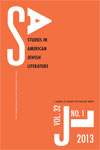
Studies in American Jewish Literature
Fostering Critical Dialogue on Jewish Cultural NarrativesStudies in American Jewish Literature, published by Penn State University Press, is a premier academic journal that delves into the rich tapestry of Jewish literary expression in America. With an ISSN of 0271-9274 and an E-ISSN of 1948-5077, this journal serves a vital role in the fields of Literature and Literary Theory, Cultural Studies, and Anthropology, as evidenced by its placement in the Q1 to Q3 quartiles across various categories in 2023. The journal is a key platform for researchers, professionals, and students interested in exploring the intersection of Jewish identity and American literature, contributing to a deeper understanding of cultural narratives and societal impacts. The publisher's commitment to scholarly excellence ensures that each issue is meticulously curated, showcasing innovative research and critical analysis. While not open access, the journal provides essential insights for anyone engaged in the study of Jewish literature or the broader cultural dynamics at play in American society. Stay informed on contemporary themes and historical contexts that shape literary discourse through this commendable publication.
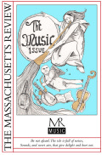
MASSACHUSETTS REVIEW
Connecting Established and New Literary TalentsThe Massachusetts Review (ISSN: 0025-4878, E-ISSN: 2330-0485) is a prominent literary journal published by the University of Massachusetts, located in the United States. Since its inception, the journal has committed itself to fostering the arts and humanities, presenting a diverse spectrum of poetry, fiction, essays, and critical reviews that engage with contemporary cultural discourse. With a 2023 Scopus rank placing it in Q3 for Literature and Literary Theory and Q4 for Visual Arts and Performing Arts, the Massachusetts Review serves as an essential platform for both established and emerging voices, enriching the conversation in these fields. Although not an Open Access journal, it provides invaluable access to thought-provoking content that challenges and inspires its audience. Situated at the intersection of literary excellence and critical thought, this journal continues to uphold its mission to stimulate intellectual engagement and to celebrate the creative arts.

NOUVELLE REVUE FRANCAISE
Charting New Territories in Literary StudiesNOUVELLE REVUE FRANCAISE, published by EDITIONS GALLIMARD, stands as a notable periodical in the realm of literature and literary theory, located in the heart of Paris, France. While it holds a Q4 quartile ranking in 2023 within its category, the journal's unique contribution to literary discourse spans two decades (2002 to 2022) and is characterized by a commitment to exploring contemporary literary criticism, theory, and interdisciplinary studies. Though it is not an open-access journal, it provides a platform for both established and emerging voices in literature, making it a valuable resource for researchers, literary professionals, and students alike. Engaging with NOUVELLE REVUE FRANCAISE means tapping into a rich tapestry of critical thought and cultural reflection that captivates the intellectual spirit of the times.